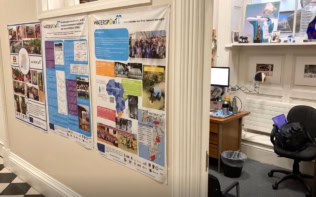It’s that time of the year, when students across the UK and in many other countries around the world head off to university. But whether you’re about to begin your degree or start your final year at university before joining the “real” world, it’s never too soon to be thinking about what path your career will follow. Perhaps a PhD or a postdoc is your next plan; or maybe you want to put your training to practical use and seek a role in industry?
Either way, the 2018 Physics World Careers guide can help you decide which route is the best for you, and introduce you to a few options you’ve perhaps never thought of before. The free-to-read 118-page guide includes articles advising on career development, case studies showcasing many different areas of physics in academia and industry, as well as a comprehensive employer directory.
The case studies have been penned by real physics graduates currently working in fields across the spectrum – from astronomical imaging and nuclear science, to fabricating lasers and cryogenics. So you’ll meet physicists such as Rami Barends, who works on quantum computing for Google. If working at accelerators excites you, there’s diagnostic physicist Lorraine Bobb. She is based at the UK’s national synchrotron Diamond Light Source, who – as you can see from their profile – have 600 researchers on their books.
But if you’d rather spend your time building designer lasers in the lab, check out the day in the life of Lucian Hand. If this appeals, then Laser Quantum may have the job for you.
If you’re a physics student with an eye on a career in teaching and education, then have a look at companies such as Sparx, who build online educational content, or find out what training and development the Researchers in Schools programme could offer you. In fact, as physicist and teacher Mark Whalley points out, your many years spent in a research lab could have given you the skills to be a leader in education.
We also have a series of career-development articles, which will help you with everything from writing up the perfect CV for an industrial role, to helping you pick a meaningful research topic.
From defence and security to data analysis to healthcare, the message of the 2018 Physics World Careers guide is that employers across the world are interested in hiring people who have the technical and problem-solving skills that a physics degree provides. You can read Physics World Careers for free online here or via the Physics World app, available for iOS and Android.



